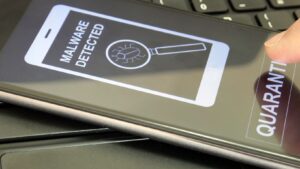
The second-largest University in Queensland, Queensland University of Technology (QUT), was attacked last month. The attack was believed to be ‘Royal Ransomware’, which caused all of the printers on the campus to continuously print out ransomware notes until the paper in the printer ran out.
QUT recently confirmed that the personal information of staff and students were compromised. According to the university, data of 67 students may have been compromised, along with some 2,500 current and former team members.
In December, printers in the university began to continuously print notes that read, “Your critical data was not only encrypted but also copied. From there, it can be published online. Then anyone on the internet from the darknet and even your employees will be able to see your internal documentation.” The threat actors behind the attack were asking for a ‘modest’ royalty in exchange for the security of the data they had infiltrated.
17 current and 50 former students were notified regarding the compromise. University spokesperson reported that the attack gained access to “some personal information for staff and students that may aid in identity theft.” The spokesperson added that the university is unaware if the data hacked is exploited.
QUT Vice-Chancellor Professor Margaret Sheil noted, “We are obviously concerned that the attack accessed stored document files, and QUT is taking all necessary actions to support those affected to prevent further illegal activity.”
Sheil added that “we have, and will continue to, directly communicate with each of the individuals, offering support through access to independent identity protection and services such as IDCARE and Equifax as well as our well-being support.”
The professor also assured the public that the university staff is working closely with the relevant authorities, such as the Australian Cyber Security Centre and the Queensland Police Service, adding that this incident is a timely reminder to be ever vigilant concerning unauthorised cyber activity.

More Stories
Killnet and AnonymousSudan Collaborate to Launch Cyber Attacks on Western Organisations
In recent news, it has been reported that two Russia-sympathetic hacktivist groups, Killnet and AnonymousSudan, have allegedly launched a series...
$4000 Gone In An Instant: Mother Defrauded in Facebook Marketplace Car Deal
A mother of four is warning others to be cautious after believing she had purchased a safe and dependable car...
Shocking Scam: Sydney Family Loses $200K Life-Savings in Suncorp Spoofing Fraud
A family from Sydney has lost their life savings worth $200,000 due to a fraudulent scam. Peter and Madison, who...
Mysterious Money Transfer Leaves Couple Speechless: How They Got an Unsolicited $4000
A young couple in Melbourne claims their bank is making up a personal loan they do not understand. Ashley and...
Phishing + AI + Voice Cloning= Big Trouble: The New Way Criminals are Stealing Your Money
New Alert: Criminals use AI and voice cloning to trick you out of your money. Earlier this year, Microsoft unveiled...
‘Impossible to Spot’ Delivery Scam Email Targets Australia Post Customers – Don’t Fall Victim!
Unsuspecting shoppers should be cautious as a parcel delivery scam that is hard to distinguish targets Australia Post customers. Email...


